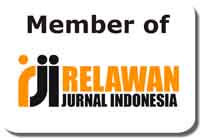Expressive Speech Acts of Politeness in The Counselling Process
Abstract
Keywords
Full Text:
PDFReferences
Aguert, M., Laval, V., Le Bigot, L., & Bernicot, J. (2010). Understanding expressive speech acts: The role of prosody and situational context in French-speaking 5- to 9-year-olds. Journal of Speech, Language, and Hearing Research, 53(6), 1629–1641. https://doi.org/10.1044/1092-4388(2010/08-0078)
Arzuaga, B. H., Holland, E., Kulp, D., Williams, D., & Cummings, C. L. (2021). Maternal preferences for approach and language use during antenatal counseling at extreme prematurity: A pilot study. Journal of Neonatology, 35(3), 122–130. https://doi.org/10.1177/09732179211035125
Brammer, L. M., Abrego, P. J., & Shostrom, E. L. (1993). Therapeutic counseling and psychotherapy (6th ed.). Prentice Hall.
Carr, C. T., Schrock, D. B., & Dauterman, P. (2012). Speech acts within Facebook status messages. Journal of Language and Social Psychology, 31(2), 176–196. https://doi.org/10.1177/0261927X12438535
Carretero, M., Maíz-Arévalo, C., & Martínez, M. Á. (2014). “Hope This Helps!” An analysis of expressive speech acts in online task-oriented interaction by university students. In Yearbook of Corpus Linguistics and Pragmatics (pp. 261–289). https://doi.org/10.1007/978-3-319-06007-1_12
Carretero, M., Maíz-Arévalo, C., & Martínez, M. Á. (2015). An analysis of expressive speech acts in online task-oriented interaction by university students. Procedia - Social and Behavioral Sciences, 173, 186–190. https://doi.org/10.1016/j.sbspro.2015.02.051
Corbin, J., & Strauss, A. (2008). Basics of qualitative research: Techniques and procedures for developing grounded theory. SAGE Publications, Inc. https://doi.org/10.4135/9781452230153
Dănilă, A. (2018). Expressive speech acts of disapproval from the perspective of linguistic realization. In Cogito (Vol. 10, Issue 1, pp. 93–105). https://api.elsevier.com/content/abstract/scopus_id/85062452301
de Leon, A., McCarthy Veach, P., Bro, D., & LeRoy, B. S. (2021). Spanish language concordance in genetic counseling sessions in the United States: Counselor experiences and perceptions of its effects on processes and outcomes. Journal of Genetic Counseling, jgc4.1472. https://doi.org/10.1002/jgc4.1472
Dykstra, R. C. (2015). Finding language for what matters most: Hosting conversations about sexuality in pastoral counseling. Pastoral Psychology, 64(5), 663–680. https://doi.org/10.1007/s11089-015-0656-2
Ekman, P., & Friesen, W. V. (1969). Nonverbal leakage as a cue to lie detection. In Psychiatry: Journal for the Study of Interpersonal Processes (Vol. 32, Issue 1, pp. 88–106).
Erzsébet, H. N. (2012). Assessment of language use: Correct vs. incorrect in language counselling. Magyar Nyelvor, 136(4), 394–407. https://api.elsevier.com/content/abstract/scopus_id/84884228328
Haley, M., Romero Marin, M., & Gelgand, J. C. (2015). Language anxiety and counseling self-efficacy. Journal of Multicultural Counseling and Development, 43(3), 162–172. https://doi.org/10.1002/jmcd.12012
Kloser, K. (2013). Positive youth development through the use of poetry therapy: The contributing effects of language arts in mental health counseling with middle school-age children. Journal of Poetry Therapy, 26(4), 237–253. https://doi.org/10.1080/08893675.2013.849042
Maíz-Arévalo, C. (2017). Expressive speech acts in educational e-chats. Pragmática Sociocultural / Sociocultural Pragmatics, 5(2), 151–178. https://doi.org/10.1515/soprag-2017-0016
Meza, J. P., Provenzano, A., Fischetti, L. R., & LaRoche, E. (2017). Language complexity differs between doctors and patients during contraceptive counseling: A mixed-method study. Communication and Medicine, 14(1), 3–14. https://doi.org/10.1558/cam.29523
Patton, M. Q. (2015). Qualitative research & evaluation methods: Integrating theory and practice. Sage Publications.
Rahardi, R. K. (2005). Pragmatik: kesantunan imperatif bahasa Indonesia [Pragmatics: Indonesian imperative politeness]. Jakarta: Erlangga.
Reyes, L., Aristegui, R., Krause, M., Strasser, K., Tomicic, A., Valdés, N., Altimir, C., Ramirez, I., De La Parra, G., Dagnino, P., Echávarri, O., Vilches, O., & Ben-Dov, P. (2008). Language and therapeutic change: A speech acts analysis. Psychotherapy Research, 18(3), 355–362. https://doi.org/10.1080/10503300701576360
Ross, A. D., Waehler, C. A., & Gray, T. N. (2013). Heterosexual persons’ perceptions regarding language use in counseling. The Counseling Psychologist, 41(6), 918–930. https://doi.org/10.1177/0011000012445475
Ruben, B. D., & Stewart, L. P. (2005). Communication and human behavior. Allyn & Bacon.
Sandberg, C. W., Nadermann, K., Parker, L., Kubat, A. M., & Conyers, L. M. (2021). Counseling in aphasia: Information and strategies for speech-language pathologists. American Journal of Speech-Language Pathology, 30(6), 2337–2349. https://doi.org/10.1044/2021_AJSLP-20-00312
Santosa, R. (2017). Metode penelitian kualitatif kebahasaan [Linguistic qualitative research methods]. Surakarta: UNS press.
Scheel, M. J., Davis, C. K., & Henderson, J. D. (2013). Therapist use of client strengths. The Counseling Psychologist, 41(3), 392–427. https://doi.org/10.1177/0011000012439427
Searle, J. R. (1969). Speech acts: An essay in the philosophy of language. Cambridge University Press.
Sekhon, J. K., Oates, J., Kneebone, I., & Rose, M. (2019). Counselling training for speech–language therapists working with people affected by post‐stroke aphasia: a systematic review. International Journal of Language & Communication Disorders, 54(3), 321–346. https://doi.org/10.1111/1460-6984.12455
Spradley, J. P. (1979). The ethnographic researcher. Holt, Rinehart & Winston.
Strong, T., Ross, K. H., & Sesma-Vazquez, M. (2015). Counselling the (self?) diagnosed client: Generative and reflective conversations. British Journal of Guidance & Counselling, 43(5), 598–610. https://doi.org/10.1080/03069885.2014.996736
Taavitsainen, I., & Jucker, A. H. (2010). Expressive speech acts and politeness in eighteenth-century English. In R. Hickey (Ed.), Eighteenth-Century English (pp. 159–181). Cambridge University Press. https://doi.org/10.1017/CBO9780511781643.010
Toscano-Cruz, M. de la O., González-Falcón, I., Gómez-Hurtado, I., & García Rodríguez, M. del P. (2020). Educational counseling and temporary language adaptation classrooms: A study through in-depth interviews. Sustainability, 12(24), 10433. https://doi.org/10.3390/su122410433
Yule, G. (1996). Pragmatics. Oxford University Press.
DOI: http://dx.doi.org/10.31332/lkw.v7i2.2961
Copyright (c) 2021 Tri Budiarta, Joko Nurkamto, Sumarlam Sumarlam, Dwi Purnanto

This work is licensed under a Creative Commons Attribution-ShareAlike 4.0 International License.
Langkawi: Journal of The Association for Arabic and English indexed by:


















.png)
.png)

.png)
2.png)








